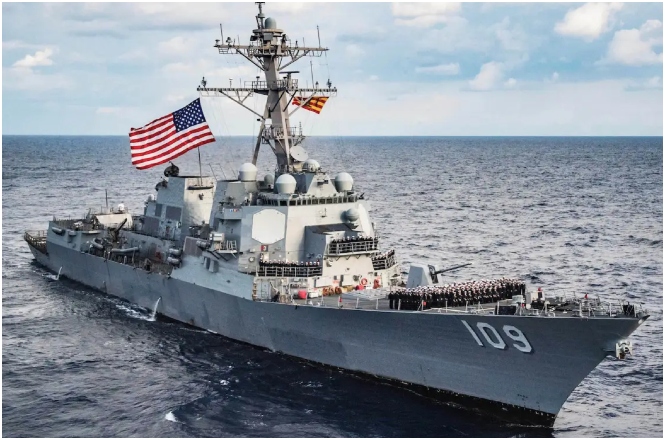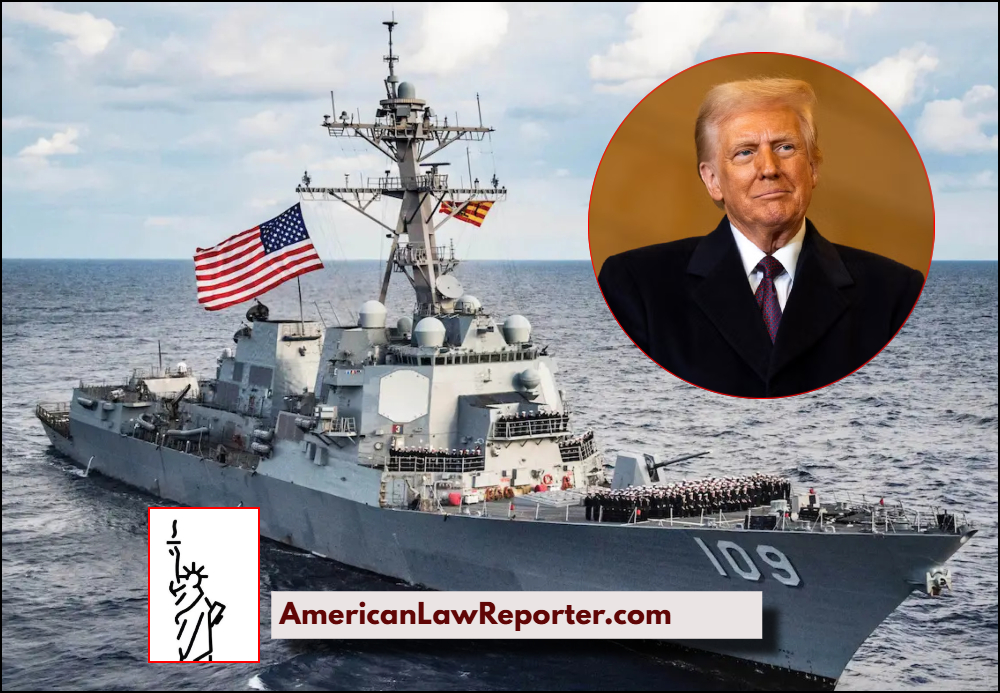The United States is deploying three Aegis guided-missile destroyers to waters off Venezuela, a move the Trump administration says is aimed at combating Latin American drug cartels designated as foreign terrorist organizations.
The operation raises significant legal and geopolitical questions about the use of military force in international waters and the classification of transnational criminal groups under U.S. law.
The Deployment

According to CBS News, the warships include the USS Gravely, USS Jason Dunham, and USS Sampson. A White House official confirmed that the destroyers will remain near Venezuela for several months. While officials stress the vessels will operate in international waters, the ships could conduct targeted strikes against cartel operations.
The administration has applied the foreign terrorist organization (FTO) label—traditionally reserved for militant groups like ISIS and Al Qaeda—to certain cartels, arguing they are responsible for trafficking fentanyl and cocaine into the United States and fueling violence across American cities.
Venezuela’s Response
President Nicolás Maduro dismissed the U.S. claims, accusing Washington of escalating threats against his country. He mobilized an estimated 4.5 million militia members in response and banned the use of drones in Venezuelan airspace, citing fears of assassination attempts similar to the 2018 drone attack against him.
Maduro has been a target of U.S. prosecution since his 2020 indictment on narco-terrorism charges, which initially carried a $15 million bounty on his capture—later increased to $50 million.
Legal and Strategic Questions
The deployment raises important legal issues:
- International Law: While the U.S. insists its ships will remain in international waters, questions remain about the legality of unilateral military action near Venezuelan territory.
- Terrorist Designations: By branding drug cartels as FTOs, the Trump administration is invoking powers under 18 U.S.C. § 2339B, which criminalizes providing material support to terrorist organizations. Critics argue this expands terrorism law into areas traditionally handled by narcotics and organized crime statutes.
- Use of Military Force: Deploying naval assets for potential strikes against non-state actors raises questions about the Authorization for Use of Military Force (AUMF) and whether congressional approval is required.
Broader Implications
Analysts warn the move could heighten tensions with Venezuela and potentially draw the United States into a regional conflict.
Maduro has framed the U.S. presence as a direct threat to Venezuelan sovereignty, while Trump continues to frame the mission as essential to homeland security.

